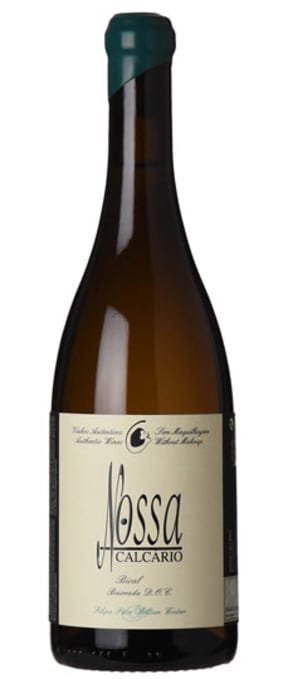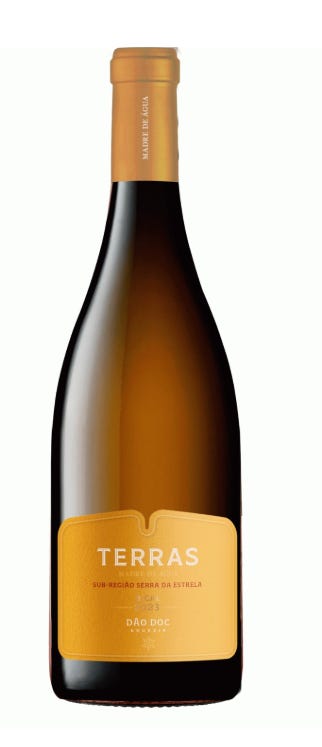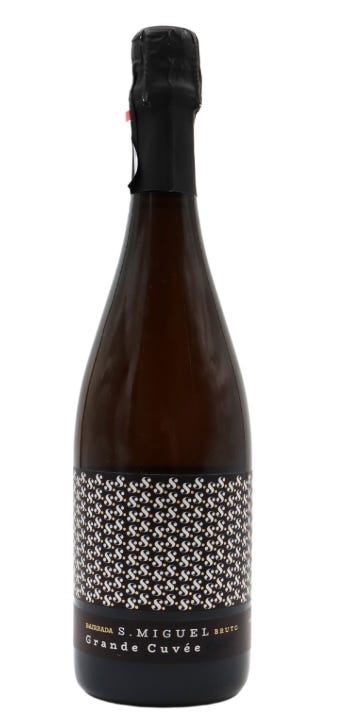Bical is one of those grapes that unless you drink a lot of Portuguese wines, you most likely would not have heard of it. I had never heard about it until I got into Portuguese wine. I mean, there are over 250 native grapes in Portugal, it would be kind of amazing if you knew them all!
Let’s get into what the Bical grape is all about. It is a white grape, native to the Bairrada region in Portugal. It mainly is grown in the Bairrrada and in the Dão regions, however, you will find it in other regions usually grown with the intention of using it for blending. Fun fact, in the Dão region, Bical is often referred to as Borrado das Moscas. It translates to fly droppings because of small brown spots that can appear on ripe berries. Pleasant, I know. Sometimes the Portuguese have the absolute best sayings.
The Bical grape can make diverse styles of wine. It is an aromatic grape with high acidity which makes it great for sparkling wine production. It thrives in cool climates with clay or calcareous soils. If you don’t know what calcareous soils are, no worries. I had zero idea when I started my wine journey six years ago that I would be writing or talking about soil so much, but here we are. Calcareous soils are soils that have high calcium carbonate formed from broken and deteriorated shells and bones of marine creatures. It becomes alkaline making it rich in minerals but some nutrients decline because of the pH levels. Over time, layers of shells and bones settle in shallow ocean floors. Depending on the heat and pressure they experience, these layers can either remain soft, like talc or chalk, or harden into materials like limestone or marble.
Now that you are done with your mini soil lesson, let’s move on. Bical is one of the main grapes in the Portuguese sparkling wine production in the region. It can hold up well when it is aged in oak barrels. It gets more delicious spending time on lees (looking at all those delicious sparkling wines). The grapes ripen early and if they are picked too late in the season the wines will become overly alcoholic with not enough acidity to balance them. If you age your bical wines they can start to develop aromas similar to aged rieslings, think petrol or kerosine.
You may not know that Portugal produces some stunning traditional method sparkling wines but it does. The Bairrada region is one of the most important regions for sparkling wine production (Távora e Varosa would be the rival region for sparkling wine production). Bical is one of the main grapes used in the region to make sparkling wines and is often blended with arinto or baga and sometimes both.
If you have a bical wine and are trying to decide what to pair it with, don’t worry too much. It pairs well with a lot of foods. Salads, seafood, poultry, goat cheese, ricotta, feta and more. Side note: If you are traveling to Portugal I highly recommend to always get the couvert! This is where I discovered some of my favorite things to pair with wines back at home when I don’t want a meal. For a bical wine in the spring or summer, I recommend a goat cheese or goat butter with fermented sourdough loaf and some tuna or sardine pâté. Delicious, easy and will really make the wine shine. The fats and oils from the cheese or butter and the seafood pair perfectly with the wine.
Bical wines to try:
Filipa Pato Bairrada Nossa Calcario Bical 2023 a bical wine from Bairrada
Terras Madre de Água Bical White 2023 a bical wine from the Dão region
Filipa Pato 3B Rosé Sparkling a rosé sparkling wine made from the baga and bical grapes
São Miguel Grand Cuvee Brut Sparkling 2018 a sparkling wine made from bical, baga and chardonnay grapes
Marquês de Marialva Bical Arinto Brut Sparkling a sparkling wine made from bical and arinto
For my American audience: You can import wines from PortugalVineyards, WineChateau and more. If you live near Boston, Portugalia Marketplace has an incredible collection of Portuguese wines. If you are like me, live in the Midwest where there are not a ton of distributors with Portuguese wines in their portfolios- you have to pay shipping to get the good stuff. Totally worth it, but don’t ship wine in the summer, way too hot in America. Also, sadly most small distributors don’t have refrigerated vans or trucks and your wine bakes in them.
YonWine is a new company I love supporting. They don’t charge shipping on wines from the vineyards they partner with in Portugal, so check them out.













Really enjoyed this write up!! I didn't get the chance to taste Bical while in Bairrada surprisingly, but I had some fab traditional method sparkling wines made with Baga. Need to check out some of these recommended bottles. Thanks!
You are right, I have never heard of it! Even when going to Portuguese tastings in America, I have never had a wine made from the Bical grape...thanks to you, I will seek it out now!